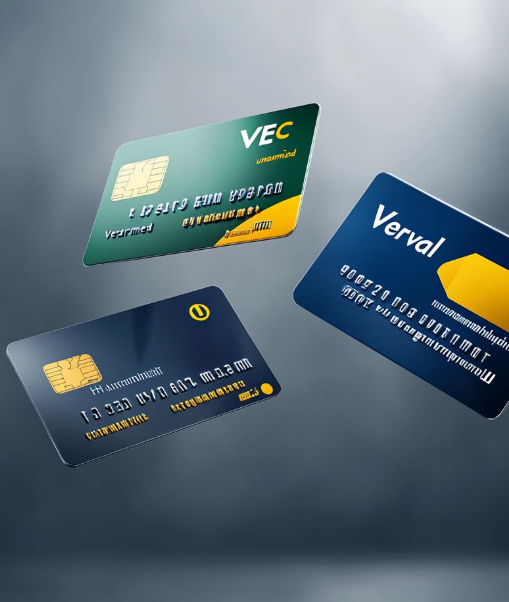In the rapidly changing world of finance, the lines between traditional banking and cryptocurrencies are beginning to blur. One innovation that has emerged from this intersection is the crypto debit card. These cards enable users to spend their cryptocurrency just like fiat currency. But how do crypto debit cards compare to traditional debit and credit cards? Let’s explore their distinct features and advantages to give you a clearer picture.
What Are Crypto Debit Cards?
Crypto debit cards allow users to make purchases with their cryptocurrency at merchants who accept standard debit or credit cards. When you use one of these cards, your crypto is automatically converted into fiat currency, enabling smooth transactions without the merchant needing to handle digital currencies directly.
These cards are usually issued by companies that partner with major payment networks like Visa or Mastercard, ensuring that they are widely accepted. For crypto enthusiasts, this is an easy way to incorporate digital currencies into everyday purchases.
Traditional Debit and Credit Cards
Traditional debit and credit cards are linked to your bank account or a line of credit, allowing you to spend fiat currency. They are widely accepted around the world and offer various perks such as cashback, reward points, and fraud protection. These cards can be used for everything from in-store purchases to online shopping, providing a straightforward way to manage your finances.
Key Differences Between Crypto Debit Cards and Traditional Cards
Currency Type
Crypto debit cards are designed for transactions in cryptocurrencies such as Bitcoin, Ethereum, or stablecoins. You can either spend your crypto directly or convert it to fiat currency before making a purchase.
In contrast, traditional cards only work with fiat currencies like the USD, EUR, or GBP, and transactions are made directly from your bank account or credit line.
Conversion Process
With crypto debit cards, cryptocurrency is converted into fiat currency at the time of the transaction, with conversion rates determined by market fluctuations. There may also be fees associated with this conversion.
Traditional cards do not require conversion, as all transactions occur directly in fiat money.
Global Reach
Crypto debit cards offer a payment solution for people in regions with limited access to traditional banking. These cards can be loaded with crypto and used anywhere that accepts major payment networks.
Traditional cards, however, require a bank account or credit history, which can exclude those in underbanked areas.
Volatility
Cryptocurrencies are known for their volatility, which can affect how much purchasing power you have. To mitigate this, many crypto debit cards support stablecoins, which offer more stability.
In contrast, traditional cards use fiat currencies, which are generally more stable and predictable.
Fees
Users of crypto debit cards might face various fees, including those for converting crypto to fiat, loading the card, withdrawing cash from ATMs, and processing payments.
Traditional cards also come with fees, such as annual charges, foreign exchange fees, and ATM withdrawal costs.
Rewards and Benefits
Many crypto debit cards offer crypto cashback, rewarding users with digital assets such as Bitcoin or other cryptocurrencies.
Traditional cards typically offer rewards in the form of cashback, points, or travel miles, redeemable within fiat systems.
Advantages of Crypto Debit Cards
Linking Crypto and Fiat
Crypto debit cards make it easier to use digital currencies in everyday situations, bridging the gap between the crypto world and traditional commerce.
With support from large networks like Visa and Mastercard, these cards are accepted globally, similar to traditional debit cards.
Crypto Rewards
Instead of earning conventional rewards, users can earn cryptocurrency with each purchase, a unique advantage for those invested in digital assets.
Financial Inclusion
These cards can be a lifeline for those in developing regions or without access to conventional banking services, offering an alternative way to handle finances.
Privacy and Control
Crypto debit cards offer more privacy and autonomy over your funds, allowing users to retain more control compared to traditional banking systems.
Challenges of Crypto Debit Cards
Volatility
The unpredictable nature of cryptocurrencies makes it harder to budget, as the value of your funds can fluctuate rapidly.
Fees
The transaction and conversion fees associated with crypto debit cards can reduce the overall value, particularly when considering rewards or everyday spending.
Limited Crypto Options
Not all crypto debit cards support a wide range of cryptocurrencies, which may limit their appeal for some users.
Regulatory Challenges
The evolving regulatory landscape around cryptocurrencies can affect the availability and usability of crypto debit cards, depending on your location.
Which Card Is Right for You?
Choosing between a crypto debit card and a traditional card depends on your financial preferences and goals:
- Crypto Debit Cards are ideal for those who want to spend digital currencies easily, earn crypto rewards, or seek alternatives to traditional banking.
- Traditional Cards are better suited for individuals who prioritize stability, global acceptance, and the added benefits of consumer protection.
For many people, using both types of cards can offer the best of both worlds—flexibility, new financial opportunities, and access to both digital and fiat systems.
The Future of Crypto Debit Cards
As cryptocurrencies continue to gain mainstream acceptance, we can expect crypto debit cards to evolve, with features like support for multiple digital assets, integration with decentralized finance platforms, and enhanced privacy protections. With clearer regulations and growing interest from both users and financial institutions, these cards may soon rival traditional cards in terms of benefits and usability.
Conclusion
Both crypto debit cards and traditional cards offer distinct advantages, serving different needs in the financial ecosystem. While traditional cards remain an integral part of the global financial system, crypto debit cards are emerging as a valuable tool for integrating digital assets into everyday transactions. By understanding their differences, you can make an informed decision about which type of card best suits your financial needs.













